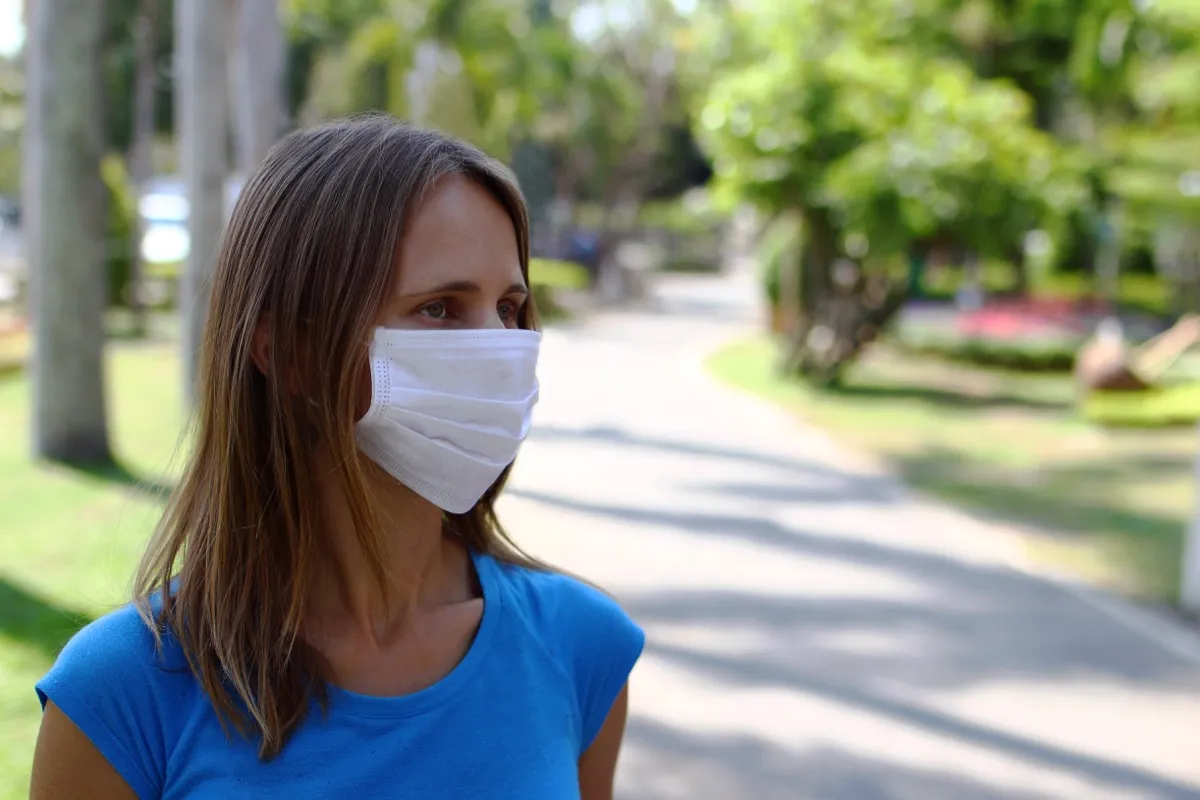The study, which has not yet been peer reviewed, comes from a research team at the University of Florida who isolated viral particles in the air from the hospital rooms of COVID patients. Significantly, these aerosols were found as far as 16 feet away from patients, much father than the 6-foot distance that the Centers for Disease Control and Prevention (CDC) recommends you keep from others. “This is what people have been clamoring for,” Linsey Marr, PhD, a professor at Virginia Tech and expert on airborne transmission, told The New York Times. “It’s unambiguous evidence that there is infectious virus in aerosols.” On Twitter, Marr called the study a “smoking gun.” Capturing viral particles in the air is a challenge, and one that previous studies have struggled with, which is why many experts are so impressed by this study. The researchers collected multiple samples from a COVID ward at the University of Florida Health Shands Hospital. The proof that coronavirus can be transmitted via aerosols is especially significant when it comes to the ongoing conversation around slowing the spread of the virus. With the knowledge that it’s much easier to contract COVID from respiratory droplets than from touching infected surfaces, experts have turned their focus to ventilation, noting that poor ventilation is one of the biggest risk factors in the spread of coronavirus.ae0fcc31ae342fd3a1346ebb1f342fcb RELATED: For more up-to-date information, sign up for our daily newsletter. Despite Marr’s assertion that the study is the proof her side has been looking for, not everyone is convinced. Virologist Angela Rasmussen, PhD, told The New York Times, “I’m just not sure that these numbers are high enough to cause an infection in somebody.” For those focused on containing the COVID outbreak, however, any research about the virus’ spread is a step in the right direction—with more sure to follow. And if you want to stay safe, This Face Covering Is Actually Worse Than No Mask at All, Study Finds.
